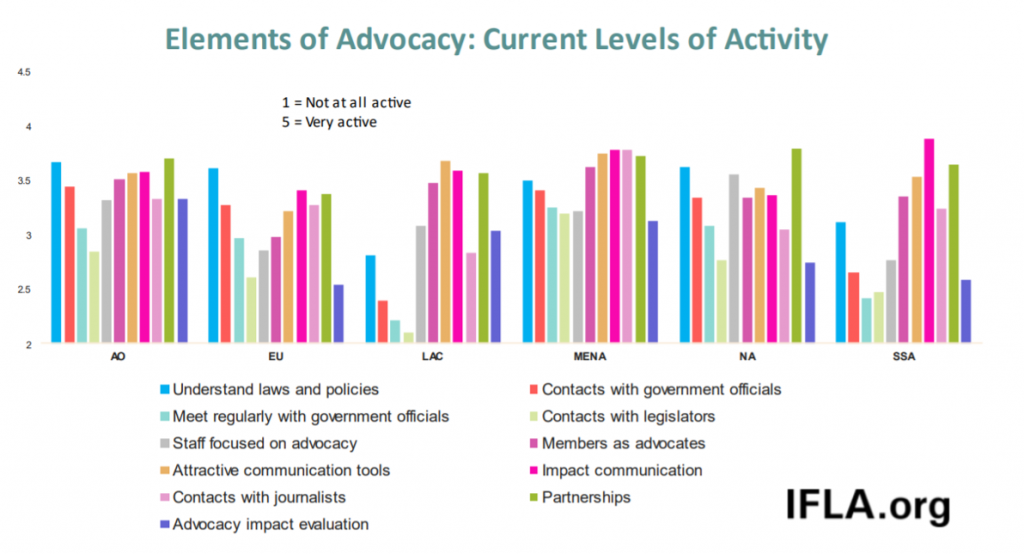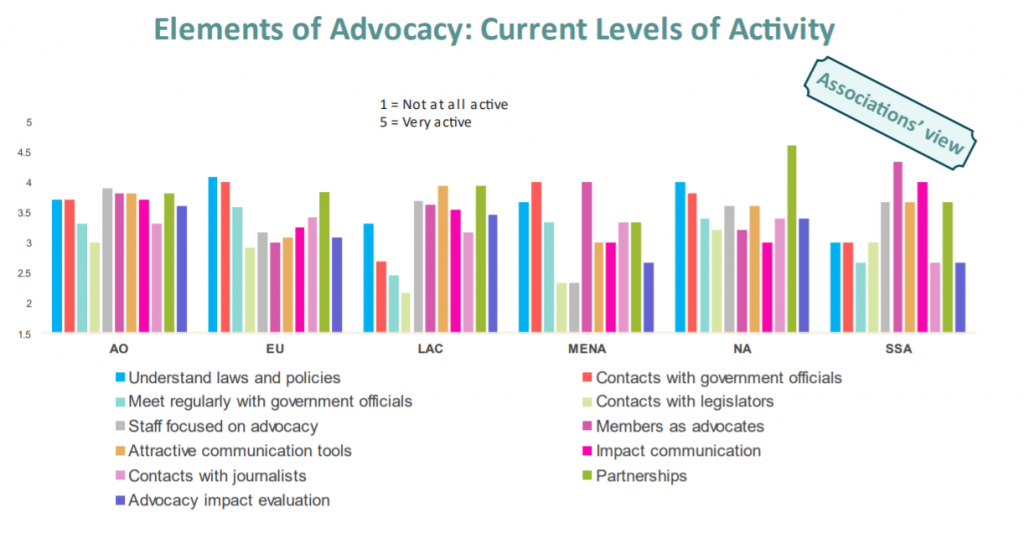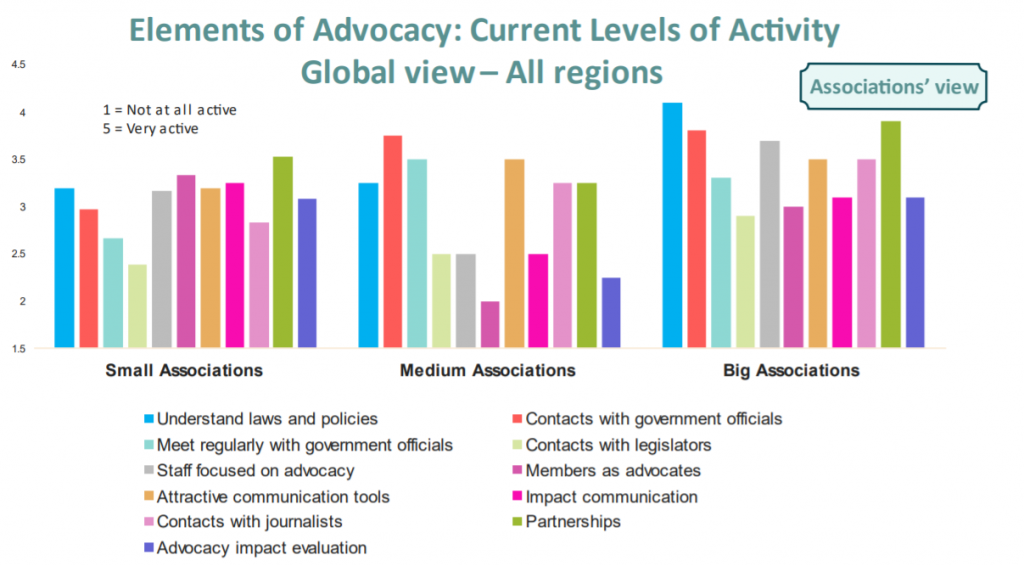Making the most of ‘international days’ and other events for communication and advocacy can be a great way to join the wider conversation, and underlined both the relevance of libraries, and the need for support in order to realise our potential.
Even as we look to clear our desks before the holiday period in many parts of the world, it’s worth already taking a look ahead to the main opportunities coming in the first half of 2022.
IFLA will mark each of these, producing new materials or highlighting existing ones that are relevant. You can take a look through, pick the ones that are closest to your work – and your interests – and think about how to get involved.
Your contribution can be anything from simply reposting social media (either to help non-library people in your network see the importance of libraries, or to get professional colleagues thinking about wider policy issues), posting a blog, attending an event or meeting, or even organising your own!
January
- 1 January – Public Domain Day: This is when, under copyright law, protections on copying and using works from a range of authors are lifted. It gives new possibilities for libraries to make their works available to users, enabling wider access – a list is available on Wikipedia. There’s also an event organised by the Internet Archives and others celebrating sound recordings which enter into the public domain in 2022, to be held on 20 January. IFLA will mark the day with a blog and social media post.
- 15 January – 5 February: #1Lib1Ref: while much of the activity that takes place around 1Lib1Ref, organised by the Wikimedia Foundation is focused on strengthening the quality of Wikipedia through the knowledge of library and information professionals, it is also a chance to underline the importance of information literacy and access to knowledge. Find out more on the 1Lib1Ref website!
- 24 January – International Day of Education: This is a relatively new UN observance, focusing on the role of education in supporting development and peace. The formal theme is yet to be announced, but will appear on the UNESCO website. Once the theme is clear, IFLA will prepare an article or blog, focusing on the contribution that libraries are making to education.
February
- 7-16 February – Commission on Social Development: The 60th meeting of the United Nations’ Commission on Social Development takes place in February, bringing together Member States to discuss in particular the need to fight poverty and hunger in the wake of COVID-19. There may be opportunities to approach relevant parts of government (or representations to the United Nations) to encourage them to highlight the work that libraries are doing, or could be doing with the right support. IFLA will prepare a note and communications in the run-up to the session.
- 8 February – Internet Safety Day: this is a growing observance, although not yet officially recognised by the United Nations. It has already seen strong library mobilisation in previous years, focusing on the role our institutions can play in giving people the knowledge and skills to become safe and confident internet users. In particular, it can be a great opportunity to build partnerships with other actors in this space. IFLA will be sharing examples of libraries’ work on the topic.
- 20 February – World Day of Social Justice: this day comes from work at the International Labour Organisation to promote social justice and policies that promote it. It refers not only to justice in the world of work, but more broadly across society, with themes such as race and the digital environment taken up in recent years. The theme for 2022 has yet to be announced, but when it is, it will appear on this page. IFLA will plan for engagement once the theme of the Day in 2022 is known.
March
- 3-5 March: African Regional Forum for Sustainable Development: the eighth such event will be organised in Kigali, Rwanda, under the theme: Building forward better: A green, inclusive and resilient Africa poised to achieve the 2030 Agenda and Agenda 2063. It will bring together UN and African Union officials, governments and NGOs, and develop a summary, key recommendations and declaration which feeds in to the High Level Political Forum. IFLA’s Sub-Saharan Africa Regional Division Committee will have a key role in preparing plans for a side-event and wider participation.
- 8 March: International Women’s Day: the theme of the day in 2022 will be ‘Changing Climates: Equality Today for a Sustainable Tomorrow’. Further information will be issued in due course, but this is of course an opportunity to highlight how libraries are promoting equity, for example as highlighted in IFLA’s review of plans to deliver on the Beijing Platform and Plan of Action. We will look to work, in particular through our Women, Information and Libraries Special Interest Group, to prepare effective communications around the day.
- 8-10 March: Forum of Countries of Latin America and the Caribbean on Sustainable Development: we are still waiting for further information about the plans for this event, with no website yet online. Information will likely be shared on the general site for the Forum. Once information is available, IFLA’s Latin America and Caribbean Regional Division Committee will have a key role in preparing plans for a side-event and wider participation.
- 15-17 March: Arab Regional Forum for Sustainable Development: we are still waiting for further information about the plans for this event, with no website yet online. Information will likely be shared on this page. Once information is available, IFLA’s Middle East and North America Regional Division Committee will have a key role in preparing plans for a side-event and wider participation.
- 28-21 March: Asia-Pacific Regional Forum for Sustainable Development: the 2022 session of the forum will focus on the theme: “Building back better from COVID-19 while advancing the full implementation of the 2030 Agenda in Asia and the Pacific”. A website has already been prepared, and an agenda is available, highlighting in particular items focused on the theme of the Forum as a whole, the SDGs in focus in 2022 (4, 5, 14, 15 and 17 – see above), and on countries undertaking Voluntary National Reviews in 2022. IFLA’s Asia-Oceania Regional Division Committee will have a key role in preparing plans for a side-event and wider participation.
April
- 6-7 April: UNECE (Europe) Regional Forum on Sustainable Development: we are still waiting for further information about the plans for this event, with no website yet online. Information will likely be shared on this page. Once information is available, IFLA’s Europe Regional Division Committee will have a key role in preparing plans for a side-event and wider participation.
- 21 April: World Creativity and Innovation Day: the first of a series of days in the space of less than a week focusing on promoting new ideas and expressions, this one looks at the role of creativity and the creative economy in supporting development. The theme of this year’s celebration has yet to be released, but will be available on the UN website in due course. IFLA will highlight the role of libraries in supporting creativity and innovation.
- 23 April: World Book and Copyright Day: an important one for libraries, this is a chance to underline the importance of books in supporting wellbeing and development, and in particular in the case of libraries, the need to ensure that everyone has equitable access (including through promoting balanced copyright systems). Many libraries and associations already plan events and actions around this day already. Global celebrations are planned by UNESCO, with further information to be available on the website in due course. IFLA will plan for communications around the day early in 2022.
- 25 April – 8 May: UN Conference on Biodiversity: delayed from last year, the UN Conference on Biodiversity marks an important milestone in the implementation of the Convention on Biodiversity, itself a key pillar of sustainability. Libraries have the potential to use the event to celebrate their work in preserving information about biodiversity, as well as supporting research. IFLA will produce a blog or story to mark the day.
- 26 April: World Intellectual Property Day: the final in the series of related events looks more broadly at intellectual property of all sorts. The theme this year will be IP and Youth: Innovating for a Better Future. While the website has yet to be updated, information should be available here in due course. IFLA will look to prepare an article and social media around the day.
May
- 3 May: World Press Freedom Day: an important day for marking the importance of freedom of expression, IFLA has in the past highlighted how libraries are supporting journalism, as well as promoting the media and information literacy that can go hand-in-hand with press freedom. This year’s focus will be ‘Journalism under Surveillance’, highlighting the importance of privacy for freedoms, with a main conference held in Uruguay. Find out more on the Day’s website. IFLA will follow preparations, and look for opportunities to stress how libraries are contributing to freedom of expression.
- 5-6 May: UN Multi-Stakeholder Forum on Science, Technology and Development: this is an annual meeting, looking to explore in particular the role of science and innovation in supporting development. Falling just a couple of months before the High-Level Political Forum, it also provides an opportunity to contribute ideas and insights. Details are still to be published, but in general, this is a chance to talk about the importance of open science for development, and the role of libraries in enabling this connection to be made. IFLA will share details about how to follow the session, and potentially bid for a side-event.
- 17 May: World Telecommunications and Information Society Day: driven in particular by the International Telecommunications Union (ITU), this focuses on the role of communications and technology in supporting the achievement of wider development goals. Again, not much information is yet available, but IFLA will share more about the theme and planned events on this when it becomes available, and opportunities to be involved. There is already information around the World Summit on the Information Society (WSIS) Forum, which will open in March, but come to a conclusion in early June. IFLA will consider bidding for a side-event, and share information about sessions that could be of interest.
- 21 May: World Day for Cultural Diversity for Dialogue and Development: this day celebrates the importance of protecting and promoting cultural diversity both as a valuable end in itself, and as a driver of progress. Details about the theme of the day will be published in due course on the UN website, but it is an opportunity to celebrate what libraries are doing both to preserve and promote diverse materials, as well as to encourage creativity. IFLA will plan for a publication and social media around the day, and potentially more depending on the theme.
June
- 5 June: World Environment Day: the 2022 edition of World Environment Day will focus on the theme of ‘only one earth’, and discuss the importance of living in harmony with nature. Sweden will host events, marking 50 years since the Stockholm Conference which led to the establishment both of this Day, and of the United Nations Environment Programme (UNEP). The day will be an opportunity to highlight both what libraries are doing to reduce their own environmental impacts, but also to look at how our institutions are contributing to wider sustainability. IFLA will produce an article and social media at least around the day.
- 20 June: World Refugee Day: libraries in many countries are strongly engaged in helping refugees and other newcomers to communities not just to integrate and develop skills, but also to find wellbeing, and maintain contacts with their friends, families, and cultures. World Refugee Day is an opportunity to highlight this work, and the need for wider investment to support those who have been forced to leave their homes. The specific theme of the 2022 day has yet to be announced, but this information will appear on the UN website in due course. IFLA will plan a publication around the day, and potentially more depending on the theme.
- 26-30 June: World Urban Forum: this biennial event takes place in Katowice, Poland, under the theme Transforming our Cities for a Sustainble Urban Future. It is the primary UN-organised event around urban policy, bringing together national and local governments, experts, and NGOs from around the world in order to talk about how to build sustainable cities and communities (SDG11), as well as to deliver on the New Urban Agenda. IFLA has already responded to the concept note for the event, and will plan for engagement highlighting how libraries make a reality of digital and cultural rights, and promote regeneration and positive transformation.



